Ideas for the World: Opening Up the Ivory Tower
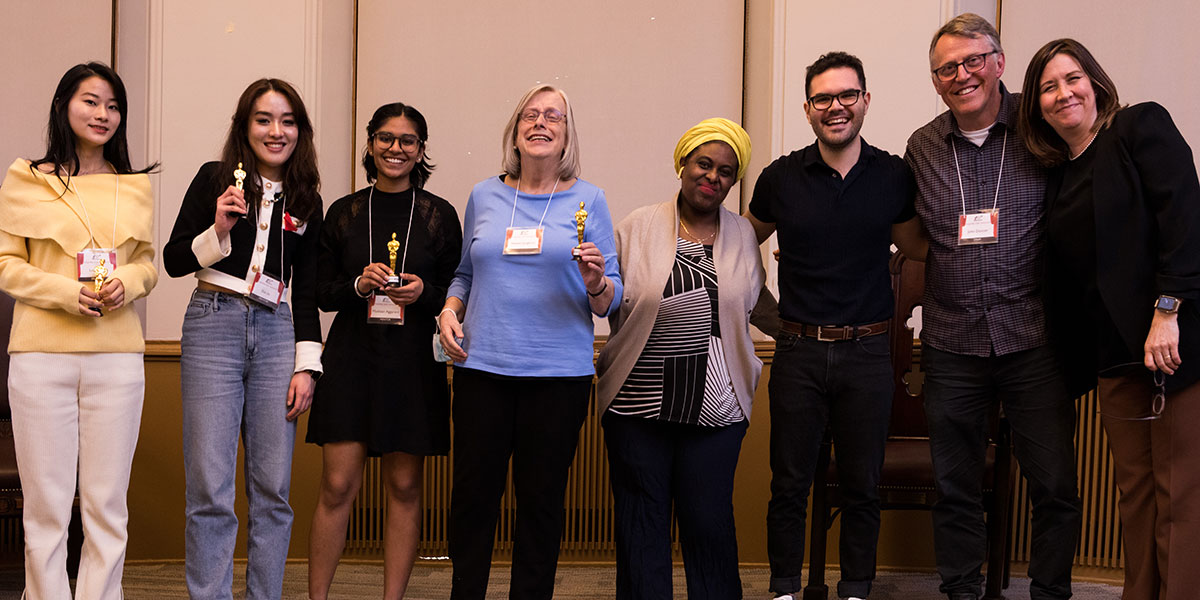
For over 10 years, the unique Ideas for the World program at Victoria University has brought together future leaders and vulnerable community members to learn from top academics — and from each other. The experience demonstrates just how much broadening the conversation benefits everyone.
By Joe Howell
Photos by Dewey Chang, Elena Ferranti and Minh Truong
“I fell through the cracks my whole life,” says Nick, a soft-spoken man with a talent for fixing cars. “I can’t read, so this course is a lot more challenging for me.”
He’s sitting outside Alumni Hall at Victoria University, chatting after a recent session of Theatre for Thought as staff clean up around him. “I see things that maybe some other people don’t, but things are different for me, because the reading is a big deal, right?”
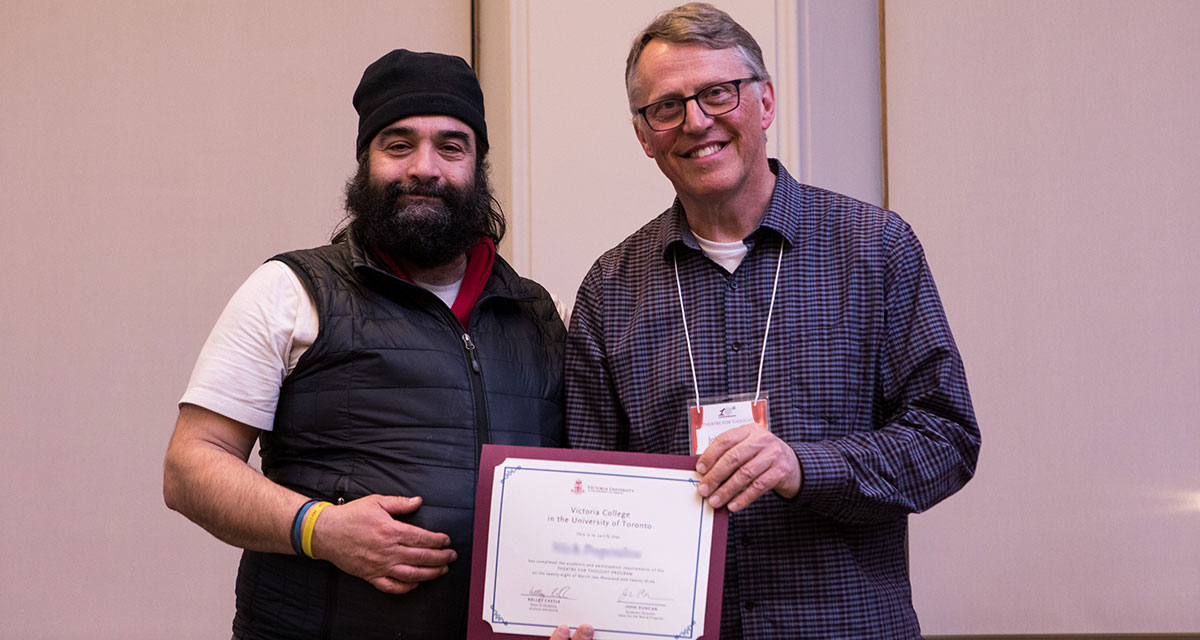
Even though Theatre for Thought isn’t graded and requires no essays or exams, participants are still expected to read a play each week, with some of them performing an excerpt to kick off the group discussion when everyone meets in person. It’s a constant struggle for Nick, but something has changed in him since he started participating in the program.
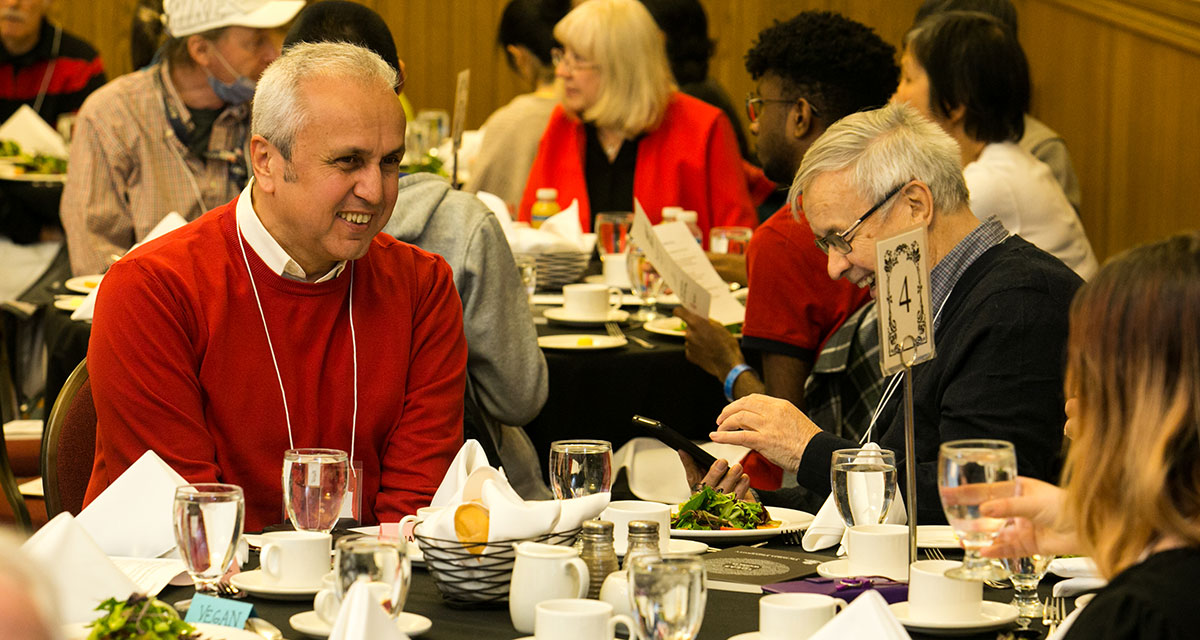
“Now, if you had a magic wand and asked what wish you could grant me?” He goes quiet, becoming uncharacteristically serious for a moment. “I’d like to have the gift of reading. I want to pour knowledge into myself.”
* * *
Every Tuesday evening, dozens of Victoria College students and community members—vulnerable Torontonians new to the university environment—gather at Alumni Hall in the iconic Old Vic building for two of the community outreach and “reach-in” parts of the Ideas for the World program, with Humanities for Humanity running in the fall and Theatre for Thought in spring. They break into groups, enjoy a dinner provided by Victoria University, listen to the guest speaker and engage in discussion. Guest lecturers have included Vic U chancellor Nick Saul, food insecurity activist and Order of Canada recipient, and Vic U president Rhonda McEwen, on developing inclusive media and technologies.
When the groups discuss that week’s topic, no two answers are the same. Community members, who hail from all walks of life, share their lived experiences; students gently guide the conversation, help explore the theme and introduce academic concepts they learn at school.
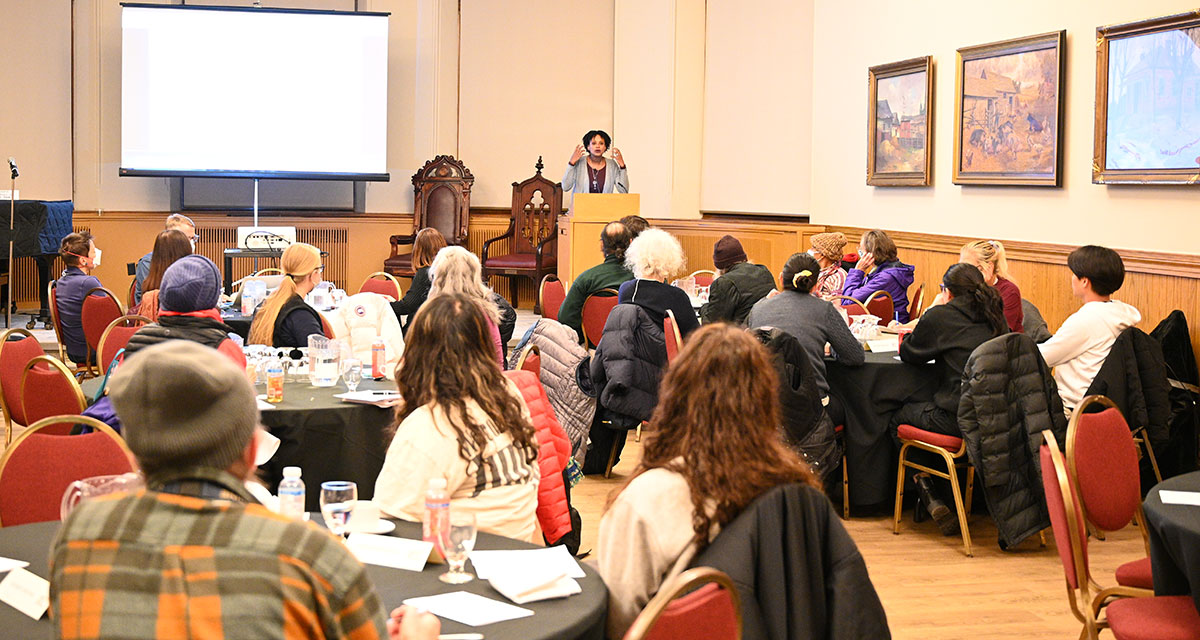
As a student at Victoria College, Jacob Levitt was officially termed a “mentor” in the program, yet he says he did far more listening than teaching. “In essence, it is a program based around communal learning, right? And to me, what communal learning means is you have a group of people coming together, learning with and from each other. It is not evaluative or didactic—it’s meant to promote discussion, inquiry and dialogue,” says Levitt.
Humanities for Humanity has run in partnership with Trinity College for over 15 years and last winter marked the 10-year anniversary since the umbrella program, Ideas for the World, found its home at Victoria University. Kelley Castle, dean of students at Vic U, was inspired to create the program when she and her husband, Professor John Duncan, worked at Trinity College. The two were moved to action after reading an article on how liberal arts education can be transformative for people in poverty. One intent of the university is to think about the world beyond the walls of the university, says Castle, “so it seems strange that we have this conception of the university as a ‘fortress’ or ‘ivory tower.’” She and Duncan set out to “make the walls of the university more porous.”
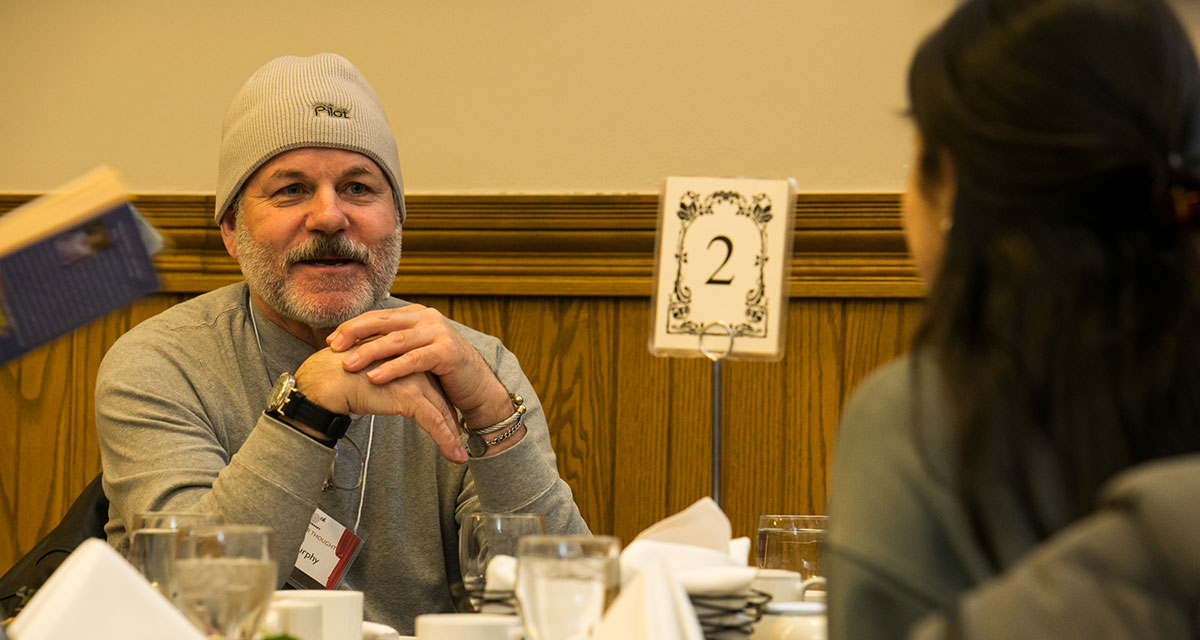
The pair conceived an academic co-curricular experience for students to help them consider how their classroom learning resonates in the real world. Castle and Duncan visited community centres, shelters, churches and more to invite people who lacked the opportunity of attending university. “It was hard in the beginning to gain trust,” says Castle. “A lot of people have been disfranchised their whole lives.”
“Interestingly, this all grows out of engagement with serious intellectual issues from the humanities broadly defined,” continues Duncan, “often from texts written hundreds of years ago. For example, if Adam Smith wrote the first great account of the origin, nature and virtues of commercial society more than 250 years ago, we dive right into his work to discuss and reflect on the commercial beings we have become!”
* * *
All community members who attend at least eight of the 10 sessions of Humanities for Humanity or Theatre for Thought in a semester get a signed certificate from Vic U. The youngest community members are teens and the eldest in their 90s; one thing they have in common is a lack of access to higher education. One participant said that “women were not even allowed to speak” in the country she came from, recalls Castle. “She told me, ‘I’m so happy that my granddaughter sees I’m doing this. I’m so proud to be able to have something on my wall showing that I participated in a university program.’”
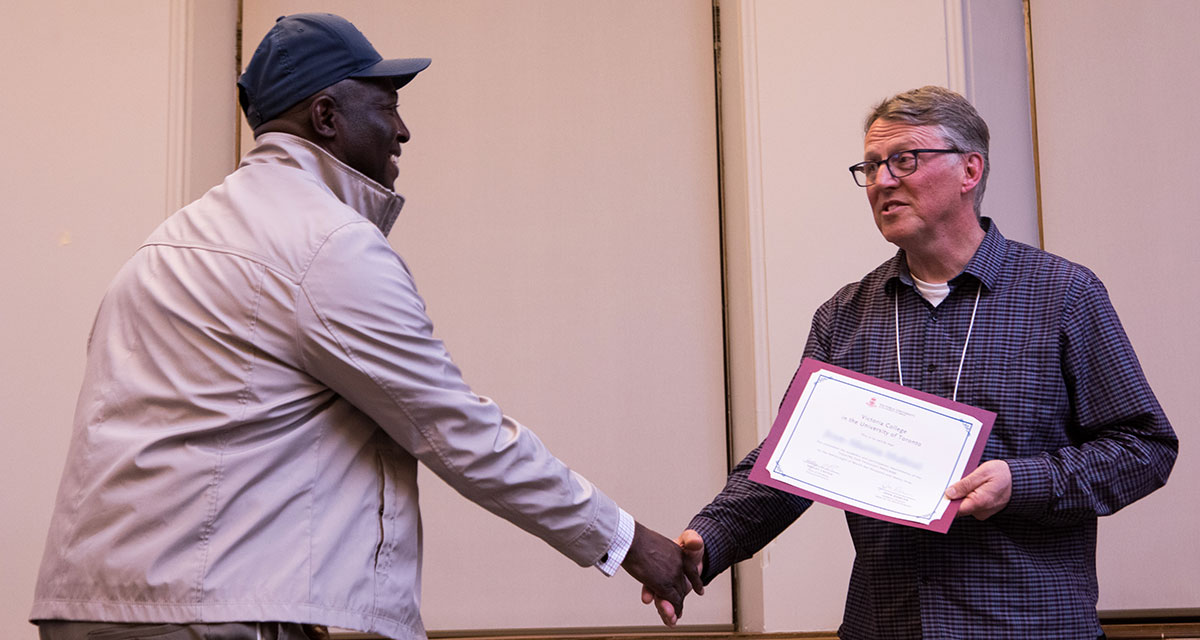
That feeling of pride is a recurring theme among community members. One alum of the program, a blind man who had hoped to become a teacher, was held back by poverty and his disability. After he passed away, his friends found his Humanities for Humanity completion certificate mounted on his bedroom wall, a testament to his abilities.
Many community members had plans for life that got derailed, and participating in the program feels like returning to the goals they had before things went sideways. “I’ve been through hell and back, and this program really helped me with a lot,” says Jennifer. “I ran away from home as a teenager because my mom was mentally ill. I just couldn’t afford school and follow the rules at the same time.” She discovered Humanities for Humanity and Theatre for Thought through the Toronto Centre of Learning & Development, and has since become passionate about history and poetry. “I would never read stuff like this back then,” she says with a laugh.
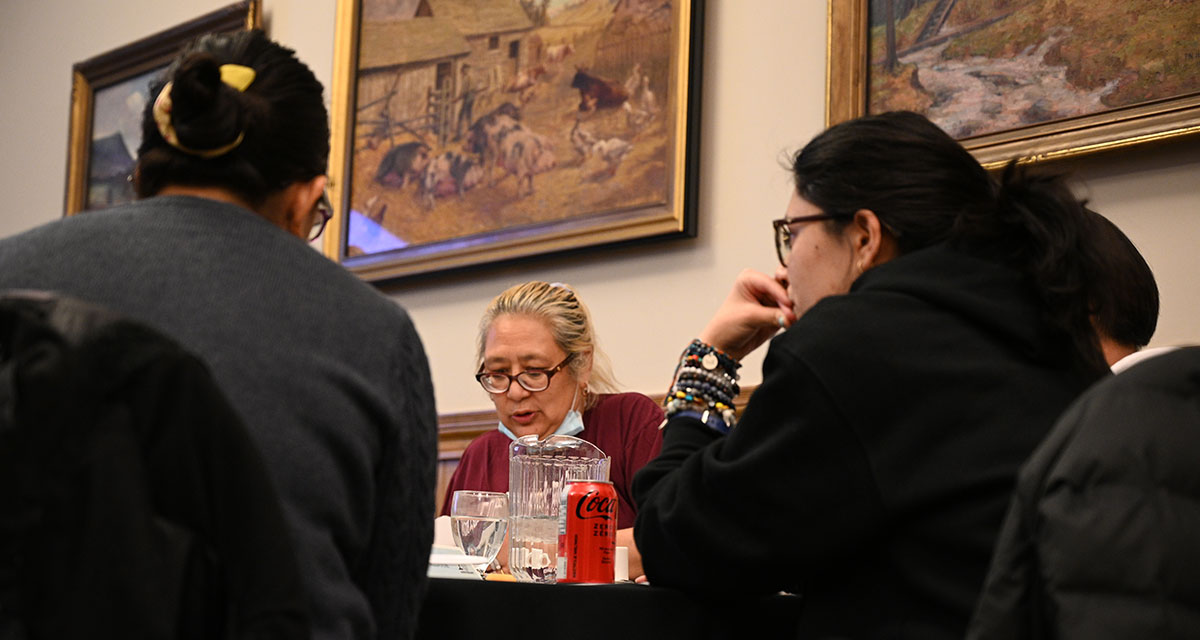
A turning point for Jennifer was meeting speakers like former Ontario premier Kathleen Wynne, who lectured on women in politics. “I'm telling you, those people really inspired me. They showed me that it doesn’t matter how old you are, it’s the path you take to get there.” Her experience with the program has motivated her to become a social worker, and she’s now taking upgrade courses to qualify for university. “One friend told me I won’t graduate until I’m 80. And I said, ‘You know what? I don’t care. I will get there!’”
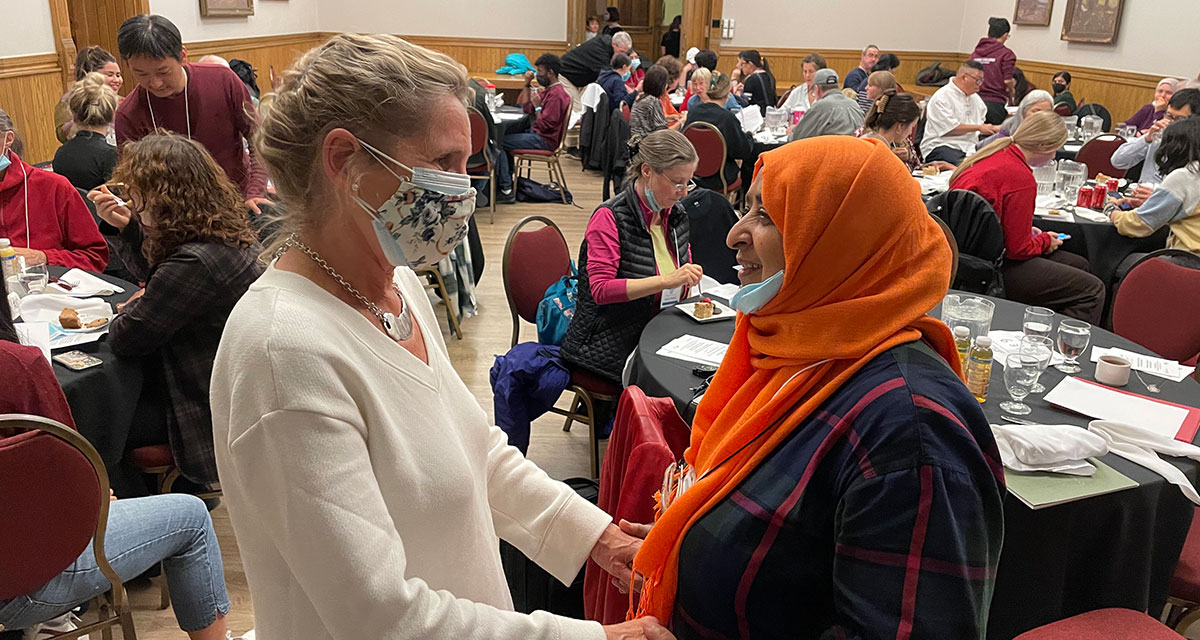
* * *
“Education is freedom,” says Dean Castle. “It’s a way of thinking outside of your own circumstances, of understanding other people’s circumstances. It’s a way of interpreting the world around you through different lenses, changing it for the better.” She and Duncan set out to help tear down the barriers facing the people who would most benefit from this freedom. Program attendees don’t just get fed intellectually—they also get a hot meal, along with free texts, transportation and childcare.
“The funny part is that our undergrad students come here because they want to do something for the community and they want volunteering experience,” reflects Castle. “By the end of it, it’s pretty hard to tell who’s learned from whom!”
* * *
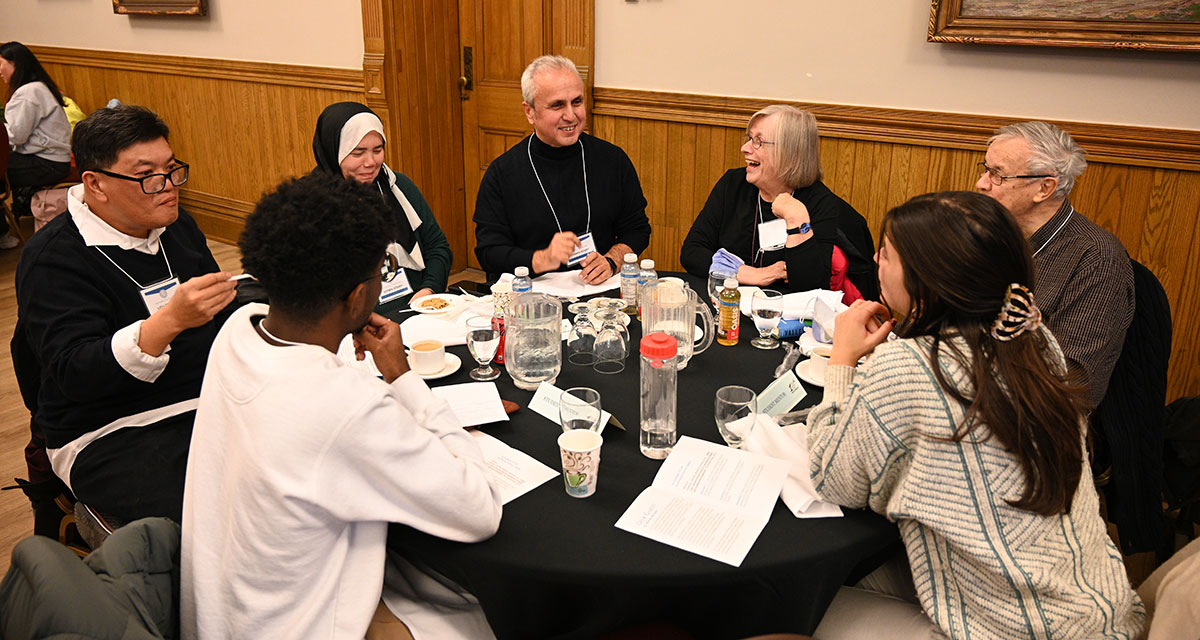
Vic student Manuela Mora Castillo fondly remembers receiving book and movie recommendations from community members, based on comments she made in previous sessions. “Listening to them describing something they love made me realize the best way to communicate your understanding of the world is by presenting these ideas in a medium that generates empathy and enthusiasm to learn more,” says Castillo.
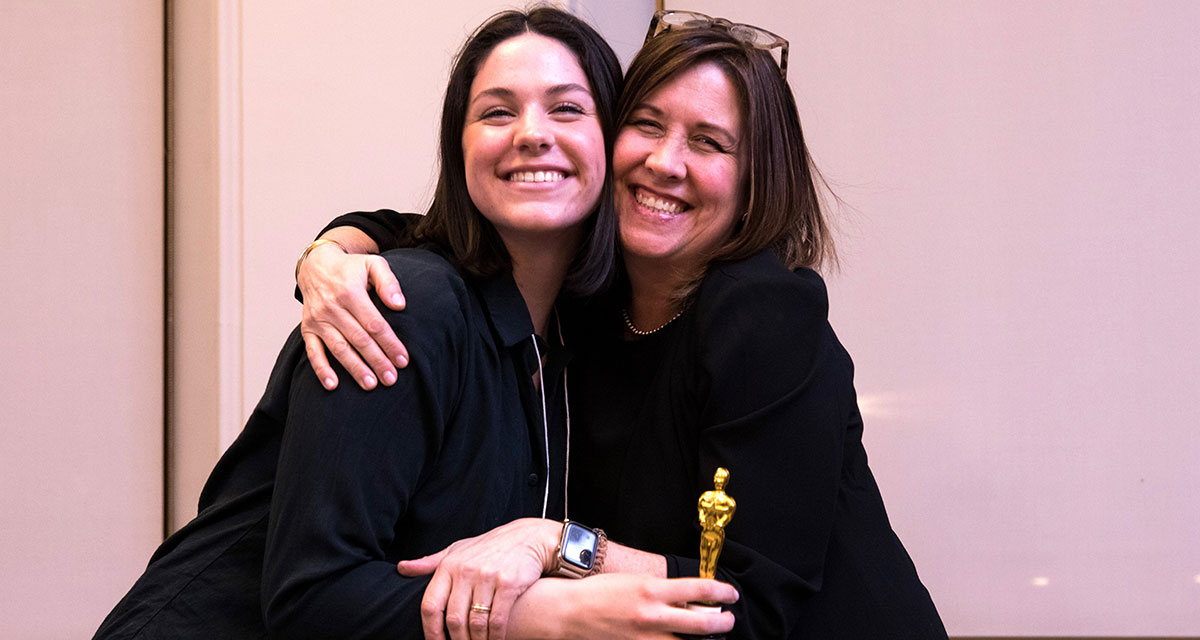
Naomi Trick, a gregarious student who graduated in June, was director of the Theatre for Thought dramatic readings last semester, meeting every Sunday with students and community members to rehearse an excerpt from that week’s play. At the final session, everyone who volunteered to perform was awarded a shiny Oscar-like trophy in categories such as “Excellence in Greek Tragedy.”
Luis, a program participant from the 40 Oaks housing community, proudly showed off the statuette he won for his portrayal of Macbeth—a role he prepared for by reading the play several times and watching a performance on YouTube. “I really loved it. That’s why I keep on asking if I can come back and play another role.”
The program emulates some aspects of a seminar, says Trick, in its converging of peers where everyone is seen as equal: “Even the lecturer is presenting as a peer and learning from everyone involved, which opens up the discussion and makes people feel more comfortable.” She emphasized how illuminating it is to hear directly from affected people when learning about topics impacting vulnerable communities. “It makes you really think about things in a different way. It’s such an enriching experience.”
Vic student Jacob Levitt agrees. “It’s a wonderful experience for people who understand going into it that they might have to reconsider some of their closely held beliefs. I think it’ll be an especially formative experience for students in their early years of undergrad, providing a different perspective for people of how to use a university space in a community-oriented way.”
So what’s the secret of the program’s endurance? “Not a year passes in which students, community participants, faculty and staff don’t tell us how much they enjoy it,” says Duncan. “The vibe that grows out of the program each year is quite simply one of love and respect.”
With files from Minh Truong.
Audio: Jacob Levitt on Learning to Listen with Humility and Empathy
Audio: Naomi Trick on Speaking with the People Directly Affected by Issues
Audio: Jennifer on How H4H Inspired Her to Go Back to School
By supporting Defy Gravity: The Campaign for Victoria University, you help provide rich learning opportunities for the next generation of graduates who will make the world a better place. Learn more about how your gift can make a difference.
Learn more about the Ideas for the World program.
